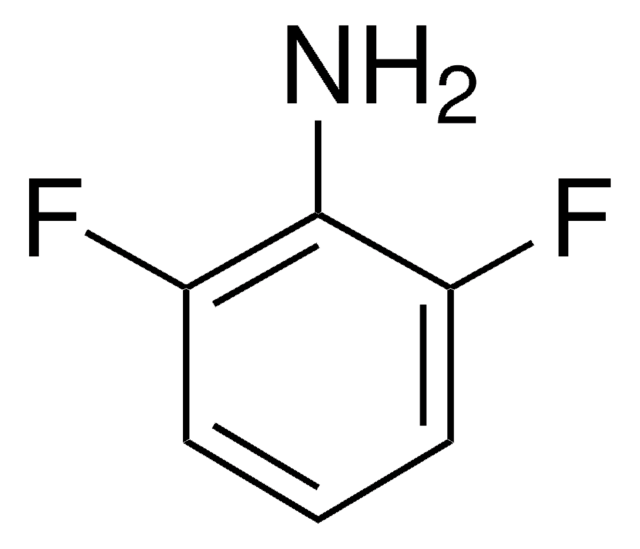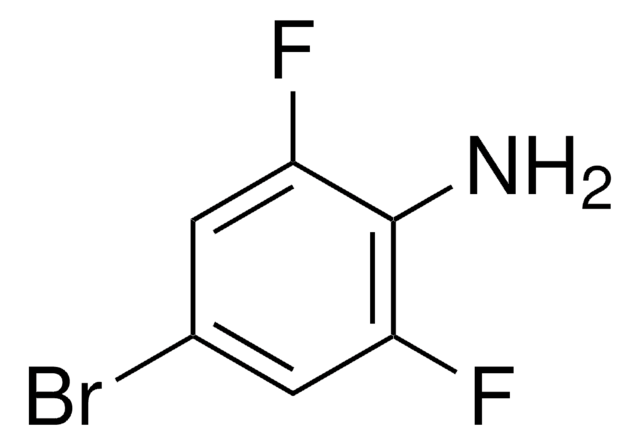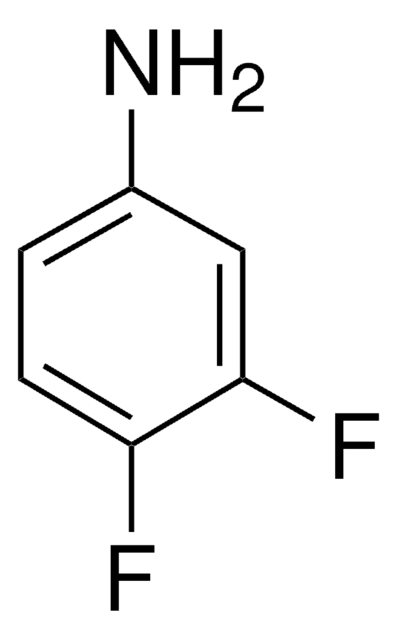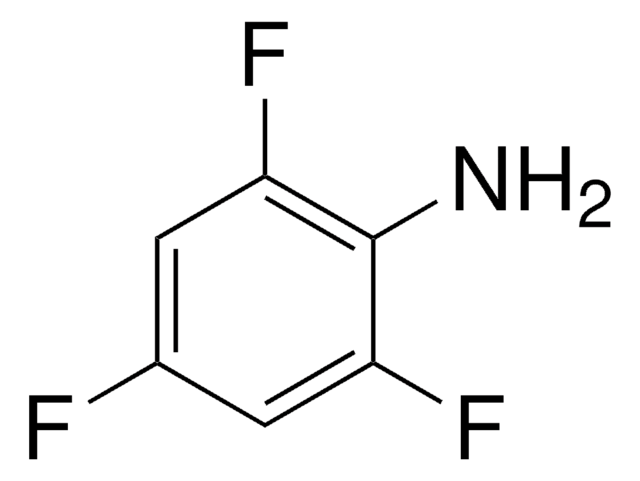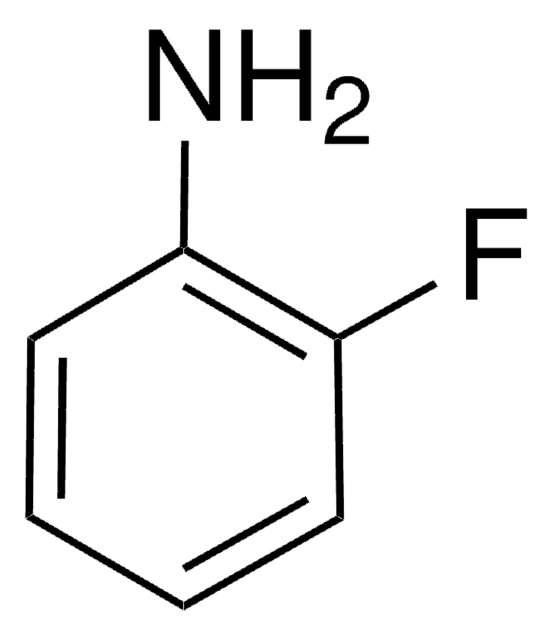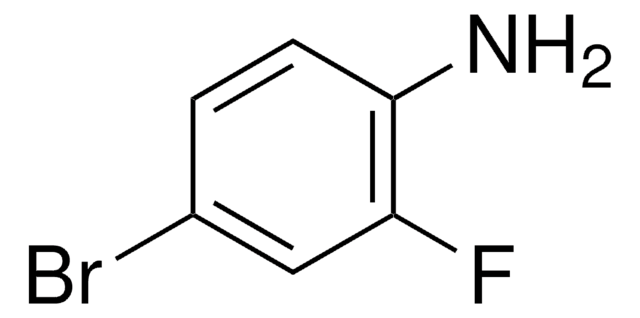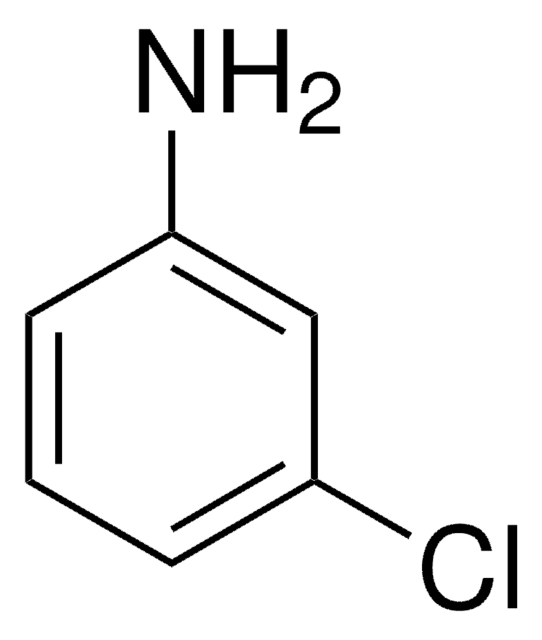D101400
2,4-Difluoroaniline
99%
About This Item
Produits recommandés
Niveau de qualité
Essai
99%
Forme
liquid
Indice de réfraction
n20/D 1.506 (lit.)
pb
170 °C/753 mmHg (lit.)
Pf
−7.5 °C (lit.)
Densité
1.268 g/mL at 25 °C (lit.)
Chaîne SMILES
Nc1ccc(F)cc1F
InChI
1S/C6H5F2N/c7-4-1-2-6(9)5(8)3-4/h1-3H,9H2
Clé InChI
CEPCPXLLFXPZGW-UHFFFAOYSA-N
Vous recherchez des produits similaires ? Visite Guide de comparaison des produits
Catégories apparentées
Mention d'avertissement
Danger
Mentions de danger
Conseils de prudence
Classification des risques
Acute Tox. 3 Dermal - Acute Tox. 4 Oral
Code de la classe de stockage
6.1C - Combustible acute toxic Cat.3 / toxic compounds or compounds which causing chronic effects
Classe de danger pour l'eau (WGK)
WGK 1
Point d'éclair (°F)
143.6 °F - closed cup
Point d'éclair (°C)
62 °C - closed cup
Équipement de protection individuelle
Eyeshields, Faceshields, Gloves, type ABEK (EN14387) respirator filter
Faites votre choix parmi les versions les plus récentes :
Déjà en possession de ce produit ?
Retrouvez la documentation relative aux produits que vous avez récemment achetés dans la Bibliothèque de documents.
Les clients ont également consulté
Global Trade Item Number
| Référence | GTIN |
|---|---|
| D101400-100G | 4061838353627 |
| D101400-10G | 4061833558348 |
| D101400-25G | 4061833558355 |
Notre équipe de scientifiques dispose d'une expérience dans tous les secteurs de la recherche, notamment en sciences de la vie, science des matériaux, synthèse chimique, chromatographie, analyse et dans de nombreux autres domaines..
Contacter notre Service technique